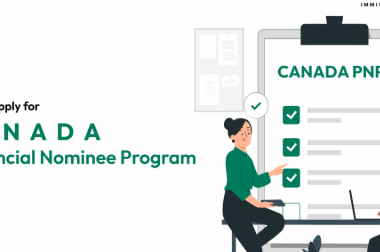The UK’s aviation sector, encompassing airlines, airports, and maintenance, offers diverse opportunities for skilled professionals. With post-Brexit labor shortages and increasing travel demand, employers often sponsor visas for foreign workers in roles paying up to £50,000 annually. This guide details key aviation jobs, eligibility, visa pathways, and application steps, using government-verified resources.
Why Aviation Jobs Are In-Demand
The UK aviation industry faces skill shortages in technical and operational roles, driven by a resurgence in travel and a reduced local workforce post-Brexit. Positions like aircraft mechanics, ground crew, and logistics coordinators are critical, with many qualifying for sponsorship under the Skilled Worker visa due to their inclusion on the UK’s Shortage Occupation List.
Key Aviation Jobs (Up to £50,000)
The following roles, offering salaries up to £50,000, are accessible with visa sponsorship and align with the ANZSCO Skill Level 2–3:
- Aircraft Maintenance Technician
Performs maintenance and repairs on aircraft. Requires a diploma in aeronautical engineering or 2–3 years of experience.
Salary: £30,000–£50,000. - Avionics Technician
Maintains aircraft electrical systems. Needs technical training or an EASA Part-66 license.
Salary: £35,000–£50,000. - Ground Operations Coordinator
Manages ground handling, including baggage and aircraft turnaround. Requires 1–2 years of logistics experience.
Salary: £28,000–£45,000. - Air Cargo Agent
Handles cargo logistics and documentation. Needs organizational skills and basic aviation knowledge.
Salary: £25,000–£40,000. - Cabin Crew
Ensures passenger safety and comfort. Requires customer service experience and English proficiency.
Salary: £25,000–£45,000.
Additional Aviation Jobs You Can Apply For
To increase your chances, also consider:
- Aircraft Cleaners and Maintenance Support Staff – critical for aircraft turnaround times.
- Flight Dispatchers – coordinate flight plans and ensure safety compliance.
- Airport Security Officers – responsible for passenger and baggage screening.
- Ramp Agents – handle aircraft loading/unloading and marshalling.
- Aviation Customer Service Officers – assist passengers with check-in and boarding.
These jobs may not always require advanced degrees but demand experience, training, or certifications that can be gained through short aviation courses or apprenticeships.
Eligibility Requirements
To qualify for these aviation jobs with visa sponsorship, candidates must meet:
- Qualifications: A diploma or equivalent in aviation-related fields (e.g., aeronautical engineering, logistics) or 2–3 years of relevant experience.
- Experience: 1–3 years in aviation, logistics, or customer service, depending on the role.
- English Proficiency: IELTS 4.0–5.0 or equivalent (e.g., PTE, TOEFL) for Skilled Worker visa eligibility.
- Skills Assessment: Some roles may require a skills assessment from a UK-approved body like UK NARIC.
- Health and Character: Pass medical exams and provide police clearances from your home country.
Check requirements on the UK Visas and Immigration website.
Visa Options for Aviation Jobs
Non-EU/EEA/Swiss citizens need a work visa. Key options include:
- Skilled Worker Visa: For roles on the Shortage Occupation List, requiring a job offer from a licensed sponsor. Valid for up to 5 years, with a minimum salary of £26,200 or the going rate for the role.
- Temporary Worker Visa: For short-term roles (e.g., seasonal ground staff), valid for up to 12 months.
- Global Business Mobility Visa: For intra-company transfers, less common in aviation but applicable for logistics roles.
Explore visa details on the GOV.UK visa page.
Application Process for Aviation Jobs
Securing a visa-sponsored aviation job involves these steps:
- Research Opportunities: Use platforms like Aviation Job Search or the official Find a Job service to locate roles offering sponsorship. Search terms like “aviation technician” or “ground operations.”
- Prepare Documents: Create a UK-format CV (2–3 pages) and cover letter, highlighting aviation experience, technical skills, and visa eligibility. Include certifications and English test results.
- Apply for Jobs: Submit applications via job portals, company websites (e.g., British Airways, Ryanair), or agencies like JMC Aviation, specifying sponsorship needs.
- Interview: Prepare for technical and behavioral questions, emphasizing safety knowledge and teamwork.
- Secure a Job Offer: Obtain a contract and Certificate of Sponsorship (CoS) from an approved sponsor, verified via the UKVI Sponsor List.
- Apply for a Visa: Submit your CoS, qualifications, health checks, and police clearances via the UKVI portal. Processing takes 3–8 weeks for Skilled Worker visas.
- Relocate and Register: Collect your Biometric Residence Permit (BRP) within 10 days of arrival and apply for a National Insurance Number (NIN).
Key Responsibilities in Aviation Roles
Typical duties include:
- Conducting aircraft maintenance, inspections, or repairs (technicians).
- Coordinating ground operations, such as baggage handling or refueling (ground staff).
- Managing cargo logistics and compliance with aviation regulations (cargo agents).
- Ensuring passenger safety and delivering customer service (cabin crew).
- Adhering to Civil Aviation Authority (CAA) standards for safety and operations.
These roles require technical skills, attention to detail, and adherence to strict regulations.
Benefits of Aviation Jobs
These positions offer compelling advantages:
- Competitive Salaries: Up to £50,000 annually, with potential for overtime.
- Visa Sponsorship: Employers often cover CoS costs, easing relocation.
- Career Growth: Pathways to senior roles like maintenance supervisors or operations managers.
- Job Stability: High demand ensures long-term opportunities, especially in airports like Heathrow and Gatwick.
- Residency Pathway: Skilled Worker visas can lead to Indefinite Leave to Remain (ILR) after 5 years.
Tips for Success
- Target Major Hubs: Focus on London (Heathrow, Gatwick), Manchester, or Birmingham for the most opportunities.
- Gain Certifications: Obtain EASA Part-66 or equivalent for technical roles to boost employability.
- Network: Connect with aviation employers via LinkedIn or industry events like Farnborough Airshow.
- Verify Sponsors: Ensure employers are on the UKVI Sponsor List to avoid scams.
- Improve English: Strong communication skills are critical for customer-facing and safety roles.
Statistics on Aviation Jobs
Job Vacancies:
In 2025, the UK reported over 10,000 aviation job vacancies, with 25% offering visa sponsorship, primarily in maintenance and ground operations (UK CAA, 2025).
Salary Ranges:
- Aircraft Maintenance Technician: £30,000–£50,000/year
- Ground Operations Coordinator: £28,000–£45,000/year
- Cabin Crew: £25,000–£45,000/year
Visa Processing Times:
Skilled Worker visa processing takes 3–8 weeks, with 90% approval for complete applications (UKVI).
Demand Growth:
Aviation roles are projected to grow 5% by 2030, driven by travel recovery and airport expansions (UK Department for Transport).


